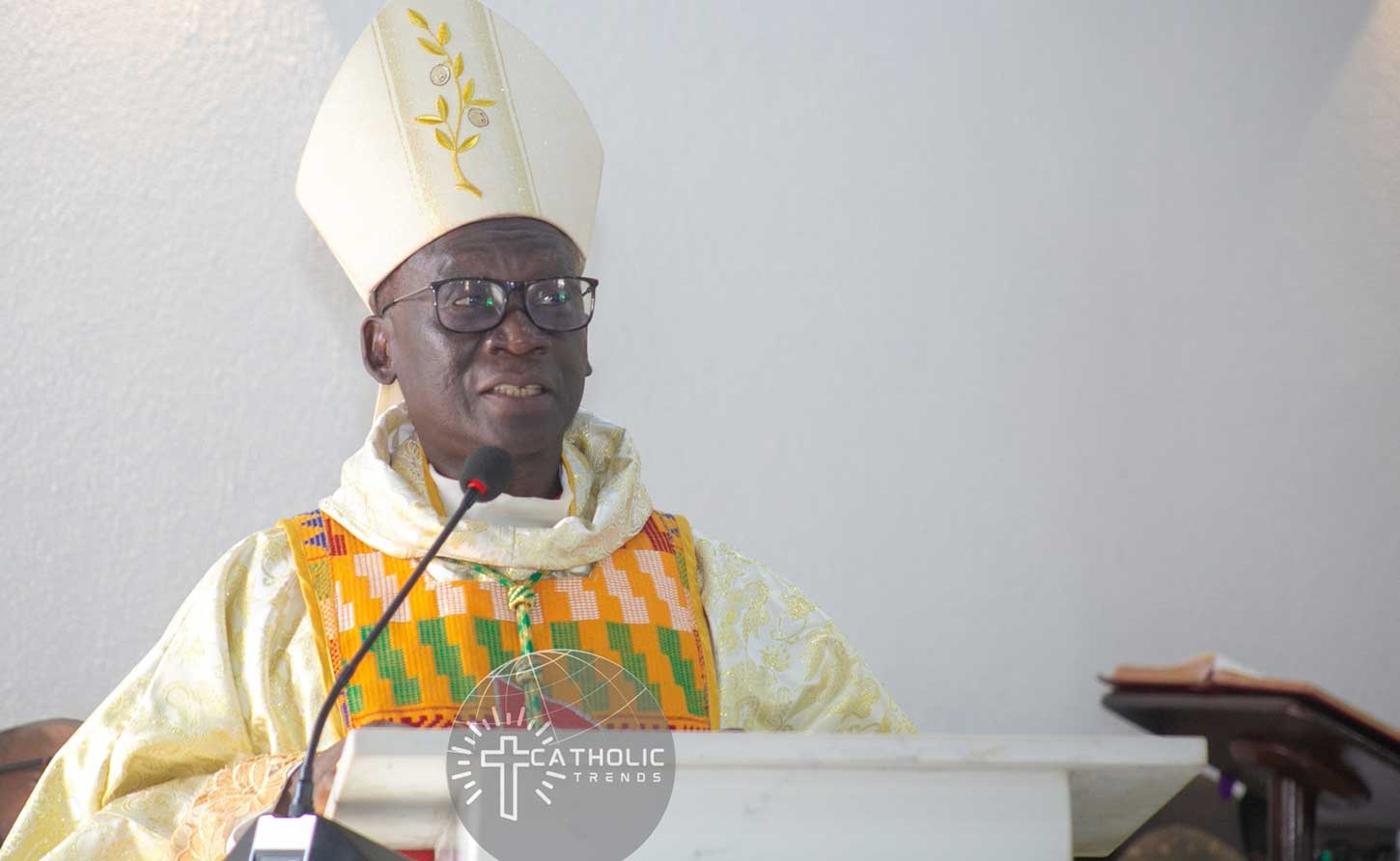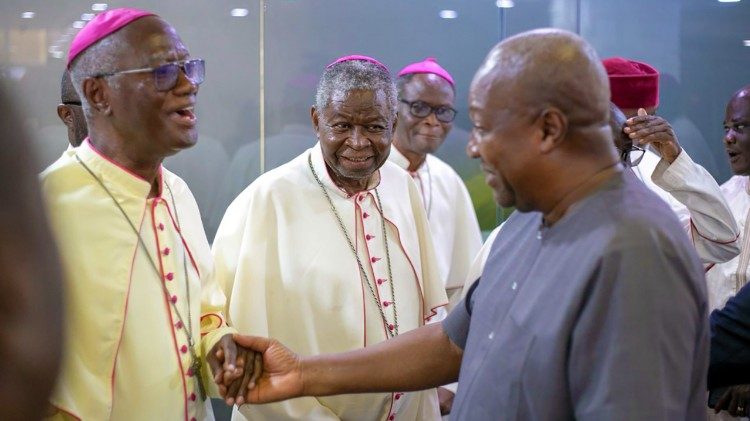GHANA | Catholic Bishops Tell Mahama: Declare Emergency or Watch Ghana Burn

ACCRA, Ghana, May 24, 2025 - Ghana's Catholic bishops have thrown down the gauntlet to President John Dramani Mahama, demanding he declare a targeted state of emergency across all areas ravaged by illegal mining—or risk presiding over the systematic destruction of the nation's natural heritage.
The extraordinary call, delivered during a high-stakes courtesy visit to the Jubilee House, represents perhaps the Church's most forceful intervention in Ghana's environmental crisis to date.
The Ghana Catholic Bishops' Conference issued a searing indictment of the country’s ecological destruction caused by illegal mining, calling for immediate and systemic intervention to halt what they describe as a “threat of national proportion.”
With water bodies poisoned, forests decimated, and farmlands rendered barren, the bishops painted a picture of a country hemorrhaging its life-sustaining resources while political leaders shuffle between half-measures and hollow promises.
“ We are burdened by the devastation of illegal mining. What began as subsistence activity has grown into a threat of national proportion. ”
Most Rev. Matthew Gyamfi, President of the Ghana Catholic Bishops' Conference, pulled no punches in his assessment of Ghana's democratic journey. "The 32 years of our democratic dispensation has been governed 16 years each by the duopoly of NDC and NPP," he observed, his words carrying the weight of institutional frustration.
The Church, he reminded the President, had fought against authoritarian regimes and would continue speaking truth to power when Ghana's integral development hung in the balance.
“Mr. President, we are also burdened by the devastation of illegal mining. What began as subsistence activity has grown into a threat of national proportion,” he said.
He outlined that over 4,000 hectares of forest cover has been lost within two years, and rivers such as the Pra, Offin, and Ankobra now reduced to “bywords for environmental collapse.”
“The ecological damage is grave, but the social and moral disintegration it breeds is just as perilous,” Bishop Gyamfi added. “We must act—not only with force, but with foresight. Enforcement must be balanced by credible and sustainable alternatives for those driven by desperation,” said Bishop Gyamfi.
But Gyamfi's most pointed barb was yet to come. "After 32 years of our democratic experience and the decisive mandate handed over to you by the Ghanaian electorate, it is time for real and meaningful change," he declared, before delivering what amounted to a presidential ultimatum: "Failure will attract very little sympathy from the citizenry."
The bishops' intervention comes as Ghana grapples with what many consider an environmental emergency masquerading as a policy challenge. The statistics alone tell a damning story—16% of the country's forest reserves have been destroyed or encroached upon by galamsey operations, transforming once-pristine landscapes into lunar-like wastelands.

The galamsey menace has proven remarkably resilient to previous government interventions. The previous administration deployed military-led task forces with names that promised decisive action—Operation Vanguard and Operation Halt—yet illegal mining continued to flourish like a particularly stubborn weed.
The limited results of these efforts serve as a sobering reminder that good intentions and catchy operation names rarely translate into environmental salvation.
“ over 4,000 hectares of forest cover has been lost within two years, and rivers such as the Pra, Offin, and Ankobra now reduced to “bywords for environmental collapse. ”
Undeterred by past failures, the current administration has unveiled its own weapon in the war against illegal mining: the Blue Water Guard. This surveillance and whistleblower task force represents a shift toward community-based enforcement, recognizing that sustainable solutions must involve local stakeholders rather than relying solely on top-down military interventions.
The initiative has moved beyond mere rhetoric. On May 21, the Minerals Commission began deploying the first wave of 453 Blue Water Guards across seven Metropolitan, Municipal, and District Assemblies in the Western Region. These personnel, fresh from training under the Ghana Navy's tutelage, represent the vanguard of a planned 2,000-member force that completed their preparation on April 14, 2025.
Operating in collaboration with both the Navy and Ghana Police Service, the Blue Water Guards embody a more integrated approach to resource protection. Whether this new strategy will succeed where previous efforts have stumbled remains an open question, but the systematic deployment suggests a recognition that piecemeal responses are inadequate to address a crisis of this magnitude.
The bishops' call for a state of emergency reflects more than environmental concern—it represents a fundamental challenge to Ghana's political establishment. Their message is clear: thirty-two years of democratic governance have produced impressive institutions and constitutional protections, but they have failed to protect the very foundation upon which Ghana's future prosperity depends.
As the Mahama administration settles into its mandate, the Catholic bishops have essentially issued a report card on Ghana's democratic maturity. Their verdict is unforgiving: impressive progress in some areas, but a glaring failure to protect the nation's environmental patrimony.
The question now is whether Ghana's leaders will rise to meet this moment of accountability, or whether they will add another chapter to the country's growing catalogue of environmental promises broken and opportunities squandered.
-30-
